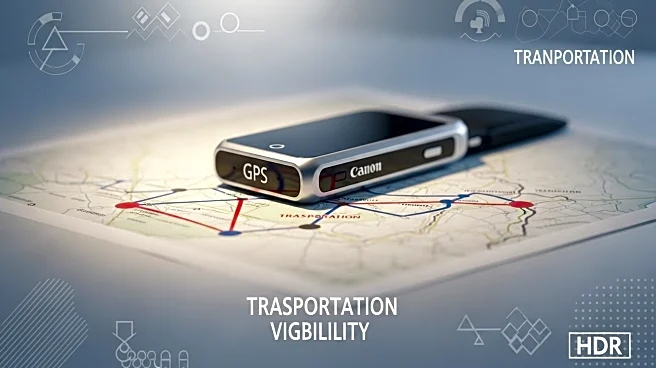What's Happening?
Schneider is utilizing asset tracking technology to improve fleet visibility and operational efficiency. The company employs Phillips Connect to track assets, not just for location purposes, but to analyze fleet performance tied to financial outcomes. Asset tracking is crucial for identifying hidden costs associated with fleet operations, such as theft and underutilization. A study by the Associated Schools of Construction highlighted that theft incidents in construction fleets can cost contractors an average of $6,000 per incident, with truck-related thefts averaging $42,000. Additionally, the American Transportation Research Institute notes that idle trucks cost fleet owners approximately $90 per hour. Asset tracking solutions, including GPS devices, are increasingly popular for mitigating these costs and enhancing fleet management.
Why It's Important?
The implementation of asset tracking technology is significant for the transportation industry as it addresses critical issues like theft, underutilization, and maintenance costs. By providing real-time visibility into fleet operations, companies can optimize asset usage, reduce downtime, and improve profitability. This technology is particularly beneficial for fleet owners who face substantial financial losses due to inefficiencies. The ability to track and analyze fleet performance allows for better resource allocation and strategic planning, ultimately leading to cost savings and increased operational effectiveness. As the demand for efficient logistics and transportation solutions grows, asset tracking becomes an essential tool for maintaining competitive advantage.
What's Next?
The continued adoption of asset tracking technology is expected to expand across various sectors, including construction and transportation. Companies may invest further in advanced tracking systems to enhance data analytics capabilities, providing deeper insights into fleet operations. As technology evolves, integration with other digital platforms could offer comprehensive solutions for fleet management, including predictive maintenance and automated reporting. Stakeholders in the industry, such as fleet managers and technology providers, are likely to collaborate on developing innovative solutions to address emerging challenges and improve overall efficiency.
Beyond the Headlines
Asset tracking technology raises important considerations regarding data privacy and security. As companies collect and analyze vast amounts of data, ensuring the protection of sensitive information becomes paramount. Additionally, the ethical implications of monitoring employee activities through tracking devices may require careful management to balance operational needs with privacy rights. Long-term, the widespread use of asset tracking could lead to shifts in industry standards and regulatory frameworks, necessitating ongoing dialogue between technology developers, industry leaders, and policymakers.










